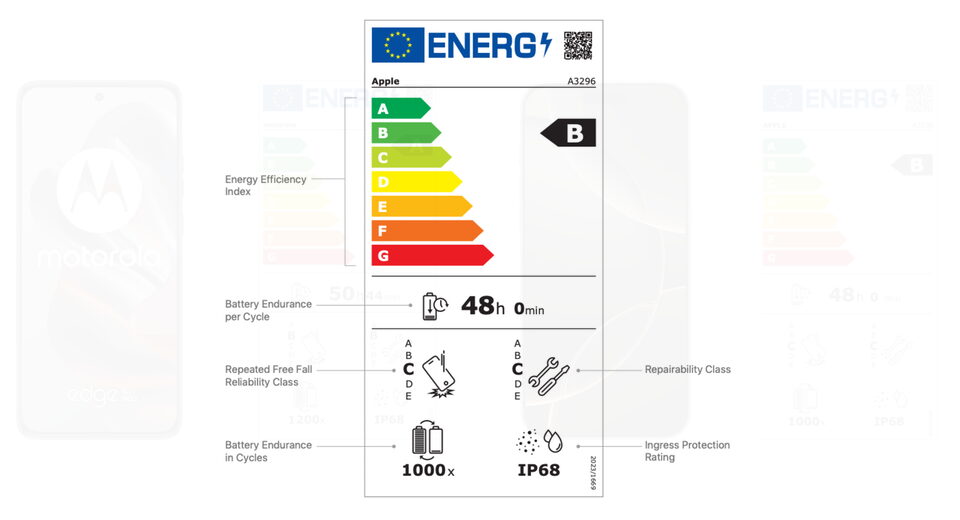U.S. Chemical Safety Board Could be Eliminated

U.S. Chemical Safety Board Could be Eliminated
Proposed 2026 budget sparks concern among industry groups

Photo: Thank you for your assistant / iStock / Getty Images Plus
The Trump administration has proposed to eliminate the U.S. Chemical Safety and Hazard Investigation Board (CSB) by October 2026, citing fiscal responsibility and redundancy with existing regulatory agencies. This proposal, embedded in the proposed fiscal year 2026 budget, has sparked bipartisan opposition in Congress and concern among industry groups.
Background on the CSB
Established in 1990 and operational since 1998, the CSB is an independent federal agency tasked with investigating industrial chemical accidents. Headquartered in Washington, DC, the agency's board members are appointed by the President and confirmed by the Senate. It conducts root cause analyses of chemical incidents at fixed industrial facilities and issues safety recommendations to prevent future occurrences.
Although the CSB lacks regulatory authority, its findings have influenced policies at the Environmental Protection Agency (EPA) and the Occupational Safety and Health Administration (OSHA) . The CSB investigative staff includes chemical and mechanical engineers, industrial safety experts, and other specialists with experience in the private and public sectors. Many investigators have years of chemical industry experience.
The CSB currently operates with just three Senate-confirmed members, down from its full complement of five, yet continues to issue major safety reports — including its latest on three catastrophic events at a Honeywell facility in Louisiana. In the CSB’S 25-year history, the agency has deployed to over 170 chemical incidents and issued more than 1000 recommendations that have led to numerous safety improvements across a wide variety of industries.
After a CSB team reaches a chemical incident site, investigators begin their work by conducting detailed interviews of witnesses such as plant employees, managers, and neighbors. Chemical samples and equipment obtained from accident sites are sent to independent laboratories for testing. Company safety records, inventories, and operating procedures are examined as investigators seek an understanding of the circumstances of the accident.
Under its public safety mission, the CSB conducts root cause investigations of chemical accidents at fixed industrial facilities. Root causes are usually deficiencies in safety management systems, but can be any factor that would have prevented the accident if that factor had not occurred. Other accident causes often involve equipment failures, human errors, unforeseen chemical reactions or other hazards. The agency does not issue fines or citations, congress designed the CSB to be non-regulatory and independent of other agencies so that its investigations enhance public safety, the safety of workers and inform industry.
Both accident investigations and hazard investigations lead to new safety recommendations, which are the Board's principal tool for achieving positive change. Recommendations are issued to government agencies, companies, trade associations, labor unions, and other groups. Implementation of each safety recommendation is tracked and monitored by CSB staff. When recommended actions have been completed satisfactorily, the recommendation may be closed by a Board vote.
While some recommendations may be adopted immediately, others require extensive effort and advocacy to achieve implementation. Board members and staff work to promote safety actions based on CSB recommendations. In many cases, the lessons from CSB investigations are applicable to many organizations beyond the company investigated. Many CSB recommendations have been implemented in industry, leading to safer plants, workers, and communities.
Key Areas of Focus:
- Chemical Incident Investigations: Determining root causes of industrial explosions, toxic releases, and chemical spills.
- Safety Recommendations & Policy Development: Providing non-regulatory safety guidance for industry and government.
- Data Analytics and Digital Modeling: Using AI and predictive analytics to assess industrial risk factors.
- Public Outreach and Reporting: Publishing incident reports, video animations, and safety recommendations.
- Cybersecurity and IT Modernization: Protecting CSB’s investigative data, reports, and forensic analysis tools.
- Industrial Hazard Prevention: Identifying systemic safety issues in chemical plants, refineries, and storage facilities.
Details of the Proposed Closure
The White House Office of Management and Budget (OMB) stated that closing the CSB aligns with efforts to move the nation towards fiscal responsibility and redefine the federal government's role. The budget documents specify that funding for the CSB should be "permanently canceled not later than September 30, 2026."
Notably, the CSB's own budget request for fiscal year 2026 was set at zero dollars, with language suggesting that its functions duplicate those of the EPA and OSHA. However, former OSHA official Jordan Barab described this as "highly unusual," implying that the request may have been imposed by the White House rather than originating from CSB leadership.
Why it Matters for the Planet:
Shutting down the CSB would weaken federal oversight of chemical safety at a time when industrial accidents pose escalating environmental and public health risks.
- CSB investigations not only prevent repeat disasters but also provide vital insights into pollution, workplace safety, and hazardous material management.
- Its absence could slow or halt environmental justice progress, particularly in frontline communities located near industrial zones.
- Impede collaboration of enhancing vital safety recommendations to close the current gaps between federal and state regulations and local ordinance.
- Support chemical industry need to protect workers, public and the environment from harm.
Mistake to Shut Down the CSB
- It Fills a Unique Safety Role: The CSB investigates industrial chemical accidents—not to assign blame, but to figure out why they happened and how to prevent them. No other federal agency does this kind of root cause analysis focused purely on safety improvement. OSHA and the EPA enforce rules, but they don’t specialize in deep, systems-based investigations like the CSB does.
- It Has a Strong Track Record: Despite its small size and limited budget, the CSB has produced high-impact reports that have led to real-world safety improvements—such as changes to refinery operations, better emergency response protocols, and industry-wide alerts on chemical handling. Its investigations have prevented repeat disasters.
- Communities and Workers Depend on It: Many of the facilities CSB investigates are located near low-income or marginalized communities. These people bear the brunt of chemical disasters—explosions, toxic leaks, fires. The CSB gives voice to those most at risk and pushes for safer industry practices that protect lives.
- It’s Cost-Effective: The CSB operates with a modest annual budget—about $13 million, which is microscopic compared to the cost of even a single industrial explosion. Its work reduces risk and saves far more in avoided injuries, environmental damage, and litigation than it costs to run.
- Eliminating It Increases Risk: Without the CSB, there would be fewer independent, transparent investigations into chemical accidents. The lessons learned from past disasters would take longer to surface—or never surface at all. That means higher risk for chemical workers, emergency responders, and nearby neighborhoods.
- It Has Bipartisan and Industry Support: Lawmakers from both parties have defended the CSB, and even chemical industry leaders have acknowledged its value. That kind of consensus is rare—and telling. Killing the CSB would go against expert opinion, common sense, and the public interest.
Reactions and Implications
The proposal has drawn criticism from lawmakers across the political spectrum. Senator Jeff Merkley (D-Oregon) warned that eliminating the CSB could lead to more chemical disasters affecting communities near industrial facilities.
Industry groups have also expressed concern. The American Chemistry Council stated that while the proposal is part of the budget process, they value the CSB's work and wish to see it continue. Similarly, the Chlorine Institute emphasized the CSB's vital role in chemical safety and advocated for its full funding or a comparable alternative.
The CSB's recent investigations underscore its importance. For instance, it released a final report on three serious incidents involving toxic hydrogen fluoride at a Honeywell facility in Geismar, Louisiana, highlighting systemic safety failures.
Next Steps
While the proposal to eliminate the CSB is part of the administration's budget plan, it requires congressional approval. Given the bipartisan support for the agency, the proposal is expected to face significant resistance in Congress. The CSB’s defunding proposal enters a contested legislative process, with early signals of pushback from both Democratic and Republican lawmakers:
- Industry groups, such as the American Chemistry Council and Chlorine Institute, have expressed support for the CSB’s continued operation
- Advocacy for stronger chemical safety regulations is expected to intensify in Congress, especially following recent deadly incidents like the hydrogen fluoride leak at a Honeywell plant in Louisiana
- The final decision will hinge on Congressional negotiations over the 2026 federal budget
As of now, the CSB continues its operations, with leadership emphasizing the agency's critical role in ensuring chemical safety and protecting communities, workers, and the environment.
Sources
- Maxine Joselow, White House proposes shutting down chemical safety agency, June 3, 2025 https://www.washingtonpost.com/climate-environment/2025/06/03/chemical-safety-board-trump-budget/?utm_source=chatgpt.com
- Illuminem briefings, White House proposes shutting down chemical safety agency, June 4 2025 https://illuminem.com/illuminemvoices/white-house-proposes-shutting-down-chemical-safety-agency?utm_source=chatgpt.com
- Chemical Safety Board, csb.gov
Share This Story
Looking for a reprint of this article? From high-res PDFs to custom plaques, order your copy today!
Bernard Fontaine has over 47 years professional and business experience in regulatory compliance, insurance, national defense, environmental services, and consulting. Fontaine was the Managing Partner of The Windsor Consulting Group, Inc., a Certified Industrial Hygienist, Certified Safety Professional, AIHA Distinguished Lecturer and AIHA Fellow as well as Past President of the NJ section of AIHA and former Board of Directors member of Workplace Health Without Borders – US branch and AIHA Board of Directors. He has served on numerous task forces and committees.
Recommended Content
JOIN TODAYto unlock your recommendations.
Already have an account? Sign In
-

Exploring the latest technologies in forklift safety
With more staff and more stock in warehousing now more...Workplace Training Strategies By: Josh Cramer -

All about welder’s flash or arc eye
A flash burn is a painful inflammation of the cornea,...Environmental Health and Safety -

The 10 most dangerous jobs in the U.S.
On-the-job deaths have been rising — hitting the highest...Occupational SafetyBy: Benita Mehta
What's Your Reaction?
 Like
0
Like
0
 Dislike
0
Dislike
0
 Love
0
Love
0
 Funny
0
Funny
0
 Angry
0
Angry
0
 Sad
0
Sad
0
 Wow
0
Wow
0



%20(1).png)




































